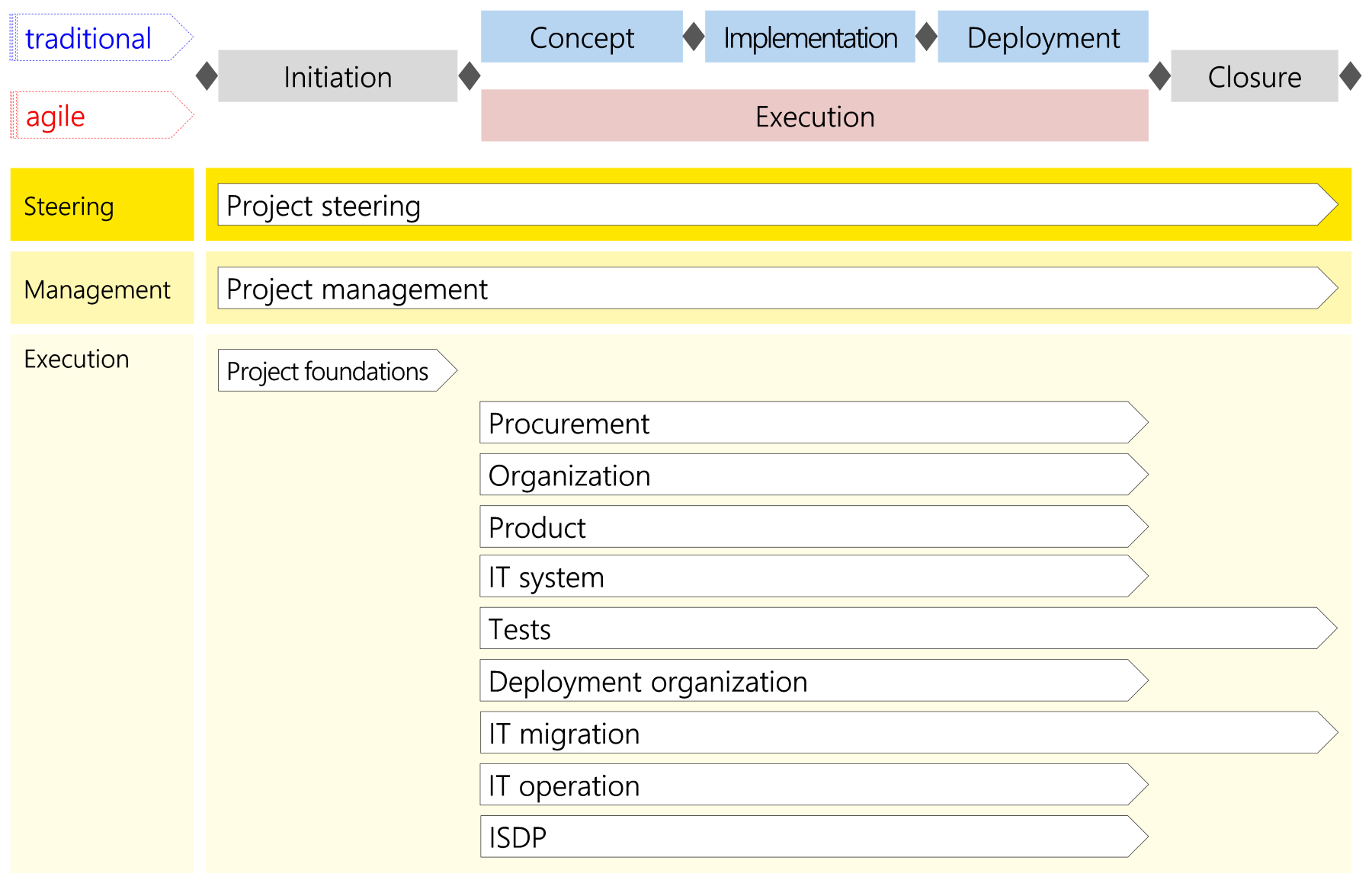Module
Introduction
Modules contain thematically related tasks and outcomes. They are building blocks for creating projects and scenarios.
Figure 25 shows an overall context of all modules that can be used and in some cases even must be used. In addition, own modules can be created.

Figure 25: Overall context of available standard modules in HERMES
Overview of modules
Standard modules
The table lists all available standard modules according to their context and shows in which project phases they can occur.
| Project Phases/Modules | Initiation | Concept (traditional) | Implementation (traditional) | Deployment (traditional) | Execution (agile) | Closure |
|---|---|---|---|---|---|---|
| Project steering | X | X | X | X | X | X |
| Project management | X | X | X | X | X | X |
| Project foundations | X | |||||
| Procurement | X | X | ||||
| Deployment organization | X | X | X | X | ||
| Organization | X | X | X | X | ||
| Product | X | X | X | X | ||
| IT system | X | X | X | X | ||
| Tests | X | X | X | X | X | |
| IT migration | X | X | X | X | X | |
| IT operation | X | X | X | X | ||
| ISDP | X | X | X | X |
To comply with the project governance, the following modules must always be included in each project:
- Project steering (all phases);
- Project management (all phases);
- Project foundations (initiation phase).
Customized modules
Supplementing the standard modules available, it is also possible to develop own subject-, organization-, or project-specific modules with existing or new customized tasks and outcomes and to integrate them into own projects or scenarios. This is also supported by HERMES online.
Examples of subject-specific, customized modules that can be developed by users include marketing, real estate, communication, personnel development, legislating, training, strategy development, and business administration deployment.
Explanation regarding the module description
For each module, a module description is provided that is always structured in the same way:
- Purpose
defines the purpose of the module. - What has to be done
describes the module tasks in the overall context of the module. - Tasks and outcomes
provide a tabular breakdown of- the module tasks in their overall context, with the decision-making tasks highlighted in pink;
- the outcomes derived from or adapted by the tasks and assigned to the corresponding project phases.